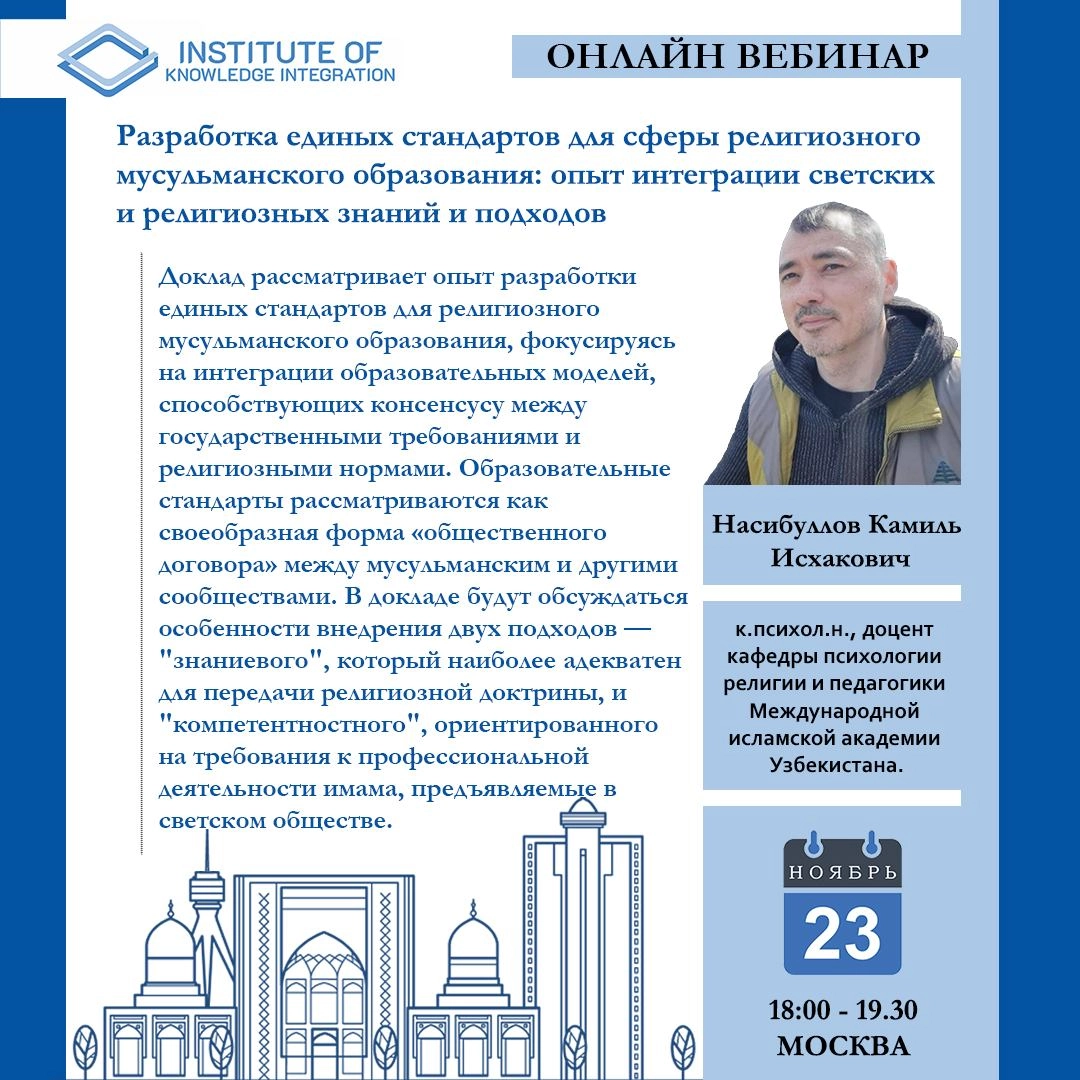As part of the IIIT Lecture Series for CIS Countries, a lecture titled “Developing Unified Standards for Muslim Religious Education” was delivered by Dr. Kamil Iskhakovich Nasibullov on November 24.
Dr. Nasibullov, a Candidate of Psychological Sciences (PhD equivalent) and Associate Professor of the Department of Psychology of Religion and Pedagogy at the International Islamic Academy of Uzbekistan in Tashkent, is a recognized expert in the standardization of educational programs. His insights are particularly valuable due to his direct involvement in the development of educational standards in the Republic of Tatarstan and at the federal level in Russia.
During the lecture, he outlined the key stages of developing and implementing these standards. In particular, he elaborated on the prerequisites for creating unified educational standards and the practical experience of their application in institutions under the jurisdiction of the Spiritual Administration of Muslims of the Republic of Tatarstan. Examples of educational institutions were provided, including the Bolgar Islamic Academy, Kazan Islamic University, and the Russian Islamic Institute, alongside eight madrasas. Additionally, it was noted that Tatarstan hosts hundreds of mosque-based religious courses, highlighting the importance of standardization for the Muslim education system.
One of the key discussion points was the role of the republic’s muftis (Gusman Iskhakov, Ildus Faizov, and Kamil Samigullin) in shaping Islamic education. Dr. Nasibullov detailed the monitoring of madrasas, the development of educational programs, and the main goals of implementing these standards, which include improving the quality of specialist training and adapting graduates to modern societal conditions. A significant achievement of the standardization process has been the creation of the Academic and Methodological Association (UMO), which has enhanced coordination among educational institutions and fostered seeking the consensus within the Islamic education community.
Special attention was given to the integration of secular subjects into madrasa curricula. This approach aims to equip students not only with religious beliefs but also with the adaptive skills necessary for life in a multiethnic and secular society. The standards combine two approaches: the “knowledge-based” approach (‘ilm), focused on preserving the doctrinal core of religious knowledge, and the “competence-based” approach, aimed at preparing graduates to address contemporary challenges.
Dr. Nasibullov highlighted the successes of standardization but emphasized that many objectives remain yet to be complete. The lecture emphasised the need for continued efforts in this area while acknowledging the complexities posed by shifting political and ideological contexts in modern Russia.









